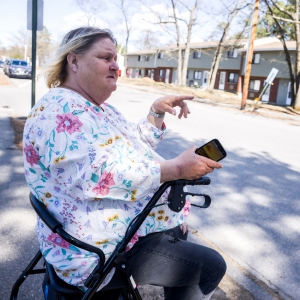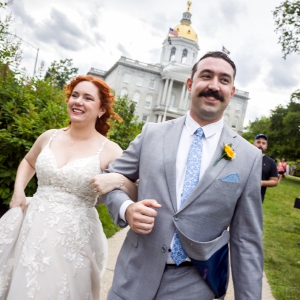Limits on hunting of coyotes in N.H. gets the thumbs down from committee
| Published: 02-06-2019 6:38 PM |
A plan to make it illegal to hunt coyotes while their pups are still young has been rejected by a House committee that balked at the idea of legislators setting hunting seasons.
Cathryn Harvey, D-Spofford, chair of the House Fish and Game Committee, pointed that lawmakers used to set hunting seasons in New Hampshire until 1989, and the result “was a disaster,” with deer populations plummeting and some animals, such as wild turkeys, wiped out of the state by poorly planned hunting.
“There’s a potential of doing a great deal of harm to our game and non-game species,” she said of the bill (HB442), which would establish a hunting season for coyotes and protect them from April 1 through Aug. 31 “to coincide with coyote pup rearing.” In this case, establishing a hunting season would provide increased protection for the animals.
Currently, there are no daytime hunting restrictions on Eastern coyotes, including no limits on how many may be killed or what time of year they can be hunted, making them unique among large fur-bearing animals in New Hampshire.
The committee voted 14-6 Tuesday to mark the bill as Inexpedient to Legislate when it goes to the full House, recommending that legislators reject it.
The lack of any regulation on killing coyotes is partly due to history. Coyotes only arrived in the state in 1944 as part of a long eastern migration and didn’t start to become at all common until the 1970’s up north and later in the southern counties, reducing the need for any hunting season until fairly recently.
Further, many farming areas oppose limits on coyote hunting from fear that they will prey on livestock such as sheep and calves. And as coyotes have moved into suburbia similar concerns have been raised about them preying on family pets. Among those who opposed the bill to restrict coyote hunting was Aboul Kahn, R-Seabrook, who cited concern about dogs and cats from constituents in his built-up district.
Tuesday’s vote followed a discussion among committee members that touched on wildlife population biology and hunting morality. Members weighed the comparative cruelty of killing female coyotes in spring and leaving unweaned pups to starve, versus leaving newborn fawns vulnerable to hungry coyotes in spring, when baby deer are a big part of coyotes’ diet.
Article continues after...
Yesterday's Most Read Articles
 ‘Deep flavor’ – New restaurant in downtown Concord offers creative spin on comfort food and cocktails
‘Deep flavor’ – New restaurant in downtown Concord offers creative spin on comfort food and cocktails
 ‘Over-regulation is going to create sneakier kids’: Concord High students react to impending bell-to-bell phone ban
‘Over-regulation is going to create sneakier kids’: Concord High students react to impending bell-to-bell phone ban
 Royal Gardens tenants worried about where they will live after building renovations
Royal Gardens tenants worried about where they will live after building renovations
 Reclaiming Healy Park: A symbol of renewal and a reckoning with homelessness in Concord
Reclaiming Healy Park: A symbol of renewal and a reckoning with homelessness in Concord
 Concord receives federal funding to clean old stables, paving way for stagecoach museum
Concord receives federal funding to clean old stables, paving way for stagecoach museum
 Concord-area runners tackle Mt. Washington Road Race
Concord-area runners tackle Mt. Washington Road Race
This taste for fawns was conveyed colorfully by Raymond Howard, R-Alton, a longtime hunter, who said that when you’re in the New Hampshire woods in spring, “You can’t kick out a pile of scat without seeing little black hooves.”
The bill’s most vocal proponent was Rep. Ellen Read, D-Newmarket, who said that Fish and Game biologists support the idea of creating a hunting season on coyotes to help control both predator and prey populations. She argued that it was legitimate for lawmakers to step into the process if the appointed Fish and Game Commission, which sets hunting seasons, won’t follow scientific advice.
“We are responding to (the commission) not following the procedure they should be following ... listening to their own biologists,” Read said.
The discussion also touched on a long-running point of debate: The fact that all Fish and Game commissioners must have held hunting, fishing or trapping licenses for at least five years. Some say this ensures the 11-person group appointed by the governor has the necessary expertise to make wildlife-related decisions, while some say it skews the commission in favor of harvesting wildlife rather than protecting it.
In a detail-filled discussion about her decision to vote against the bill, Harvey said her initial reaction was to support the bill “because nobody wants to hunt mothers,” but that she changed her mind partly because there is a lack of studies specific to New Hampshire about the effect of coyote hunting on coyote or deer populations. Studies that are cited by both sides, she said, tend to be done in New York state or similar places such as Pennsylvania or Illinois.
Both supporters and opponents of the bill mentioned Chris Schadler, a New Hampshire expert whose Project Coyote is a well-respected resource on animals.
Schadler is generally not a proponent of hunting coyotes. She argues that the structure of coyote interaction means that killing adults, particularly adult females, can actually increase the coyote population because it disrupts family dynamics and leads to larger, or more, litters of pups.







 Photos: A Downtown ‘I Do’ at Market Days in Concord
Photos: A Downtown ‘I Do’ at Market Days in Concord Granite Geek: The circle of life is painful when watching the species-gets-killed part
Granite Geek: The circle of life is painful when watching the species-gets-killed part Concord’s two Rite Aid stores shutting soon
Concord’s two Rite Aid stores shutting soon
